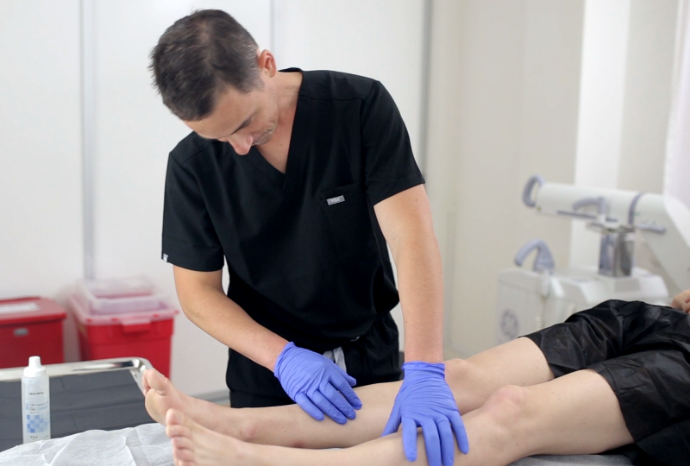
How Does A Vein Doctor Diagnose And Treat Varicose Veins?
Varicose veins, those twisted and swollen veins that often appear on the legs, can be a source of discomfort and concern for many individuals. Seeking professional help is crucial, and this is where a vein specialist, commonly known as a phlebologist, comes into play. In this comprehensive article, we will delve into the intricate world of vein health, exploring the techniques a vein doctor employs to diagnose and treat varicose veins, while shedding light on the question: What is a vein doctor called?
Understanding the Role of a Vein Doctor:
A vein doctor, or phlebologist, is a medical professional with specialized expertise in diagnosing and treating disorders related to the veins, with a primary focus on conditions like varicose veins and spider veins. These healthcare practitioners typically have a background in vascular medicine and possess advanced knowledge of the circulatory system.
Diagnosis of Varicose Veins:
The journey towards effective treatment begins with a thorough diagnosis. Vein doctors employ various techniques to assess the extent and severity of varicose veins, including:
Clinical Evaluation:
The first step involves a comprehensive clinical examination. The vein doctor assesses the patient’s medical history, risk factors, and symptoms related to varicose veins.
Ultrasound Imaging:
Utilizing advanced ultrasound technology, vein specialists can visualize the veins beneath the skin’s surface. This imaging technique helps identify valve dysfunction, blood flow abnormalities, and the precise location of problematic veins.
Doppler Ultrasound:
Doppler ultrasound is commonly used to assess blood flow and detect any abnormalities. This aids in understanding the dynamics of blood circulation within the affected veins.
Photoplethysmography (PPG):
PPG measures changes in blood volume within the veins, providing additional information about the functioning of the venous system.
Treatment Approaches for Varicose Veins:
Once diagnosed, vein doctors develop personalized treatment plans based on the severity and specific characteristics of the varicose veins. Common treatment options include:
Conservative Measures:
Lifestyle modifications, such as regular exercise, weight management, and wearing compression stockings, may be recommended to alleviate symptoms and prevent further progression.
Minimally Invasive Procedures:
Vein specialists often opt for minimally invasive procedures like endovenous laser treatment (EVLT) and radiofrequency ablation (RFA). These techniques involve closing off the affected veins using heat, redirecting blood flow to healthier vessels.
Sclerotherapy:
Sclerotherapy is a popular method for treating smaller varicose veins and spider veins. A special solution is injected into the veins, causing them to collapse and eventually fade away.
Ambulatory Phlebectomy:
In cases where varicose veins are close to the surface, ambulatory phlebectomy may be recommended. This involves the removal of the veins through small incisions, usually done on an outpatient basis.
The Importance of Seeking Professional Care:
While over-the-counter remedies and lifestyle changes may provide temporary relief, consulting a vein doctor is crucial for a thorough assessment and appropriate treatment. Ignoring varicose veins can lead to complications such as chronic venous insufficiency, skin ulcers, and increased discomfort over time.
What is a Vein Doctor Called?
The term “vein doctor” is commonly used, but the more formal and specialized name for these healthcare professionals is “phlebologist.” A phlebologist is a physician dedicated to the study and treatment of disorders related to the veins, ensuring that patients receive expert care for conditions such as varicose veins, spider veins, and other venous insufficiencies.
Conclusion:
In the intricate realm of vein health, a vein doctor, or phlebologist, plays a pivotal role in diagnosing and treating varicose veins. Utilizing a combination of clinical evaluation and advanced imaging techniques, these specialists tailor treatment plans to address the unique characteristics of each patient’s condition. Whether through minimally invasive procedures or conservative measures, the goal is to enhance overall vein health and alleviate the discomfort associated with varicose veins. Seeking timely and professional care from a vein doctor ensures not only symptom relief but also a proactive approach to preventing potential complications.





Leave Your Comment